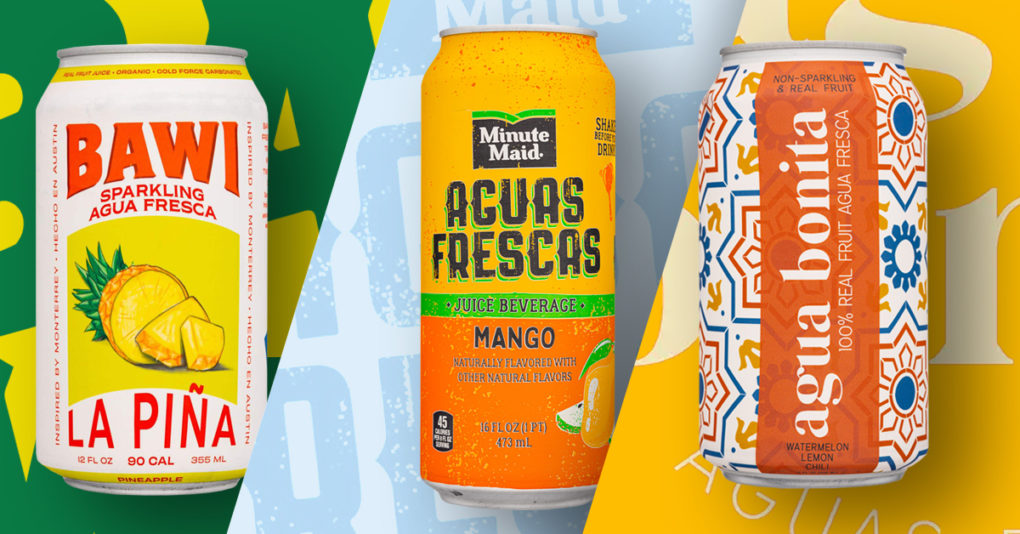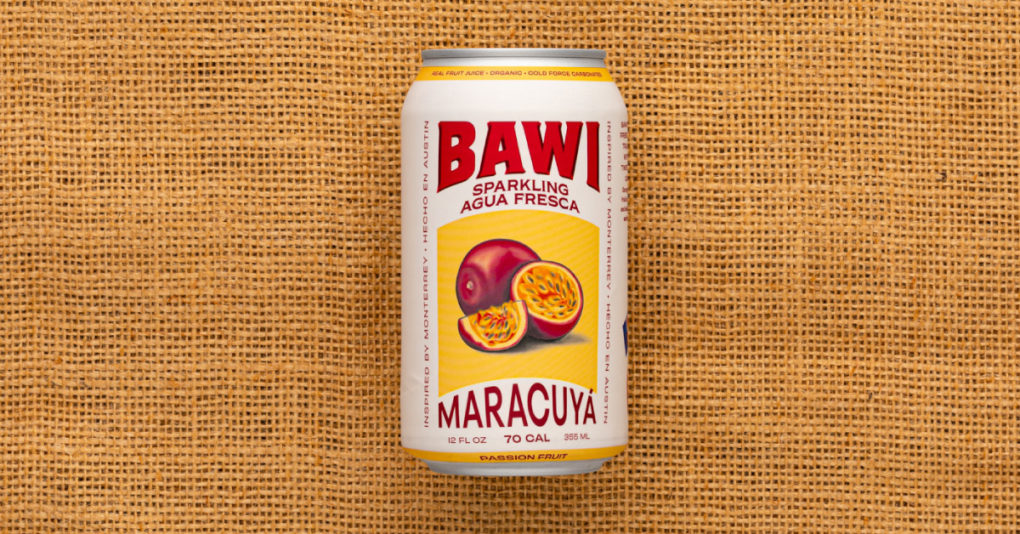

In 2021, Agua Bonita – a small, Latina-owned startup brand making canned, better-for-you agua fresca drinks – was named the victor of BevNET’s summer New Beverage Showdown. In her winning pitch, founder and CEO Kayla Castañeda called the traditional Mexican beverage a “bridge” between juice blends and water that had high potential in the mainstream market “just like other cultural drinks that have assimilated like kombucha and matcha.”
Three years later, Agua Bonita is still a growing brand, but it’s now flanked by other brands in a category that has received widespread attention from all reaches of the beverage industry. Castañeda faces competition from fellow entrepreneurial startups such as Bawi and Frescos Naturales, to launches from corporate giants like Coca-Cola (Minute Maid) and BlueTriton Brands (Frutitas), to legacy family companies such as Langers Juice.
On-premise, Taco Bell began testing a new line of “Aguas Refrescas” this spring in a drive to become a “beverage destination”, while other small brands like Salud Refresco and TUYYO have played with format by introducing powdered versions. There’s even functional versions – energy drink brand Mas has presented itself as a caffeinated riff on an agua fresca and PepsiCo’s Rockstar has also dabbled in fresca flavors.
New innovations in this growing category are also embracing hard varieties, with alcohol producers Modelo, Mike’s Hard Lemonade, Calidad, Coron, Topo Chico and independent brand Picadas all launching spiked takes on the style.
While it’s still early days for agua fresca in the U.S. market, founders have felt the tide lift in the past three years. The embrace from larger companies has raised awareness and made it easier for startup brands to win a foothold in retail, founders say.
“I think now there’s definitely a bigger demographic that is searching for aguas frescas,” Castañeda told BevNET in a phone call last week.
Castañeda said Agua Bonita has grown its retail footprint from just 200 doors about 18 months ago to around 2,000 today, including a nationwide presence in Whole Foods.
Mark Gallo, senior manager of commercial services at co-packer Manna Beverages & Ventures and a former sales and marketing leader at Anheuser-Busch InBev, said he sees agua fresca as a fast-rising category which is breaking out beyond the food service channel and more aggressively gaining share in convenience, mass and conventional retail accounts.
“With that kind of distribution gain [and] awareness driving campaigns, it’s not necessarily targeted at the first- and second-generation Hispanics. This is becoming a more… total U.S. population beverage,” Gallo said.
The simultaneous introduction of alcoholic and non-alc versions of the drink is a good sign for the category, Gallo suggested, claiming it’s evidence of aguas frescas’ mass appeal – not dissimilar from the emergence of hard seltzer as a complement to the growth of sparkling water.
“I think the category is just ready for prime time. If stuff is in alc- and in non-alc, it’s ready to reach the masses,” he said. “If it’s focused on one – non-alc or alc – it’s probably in its infancy.”

Beyond the Ethnic Aisles
True to Castañeda’s 2021 prediction that aguas frescas could become a mainstream product that appeals equally to Hispanic and non-Hispanic consumers, the rise of the category in retail has seen growing diversity in the types of shoppers who are picking up the products.
According to consumer survey data from the Brightfield Group, 55.7% of agua fresca consumers identified as Hispanic or Latino, while 44.3% identified as Caucasian. The category consumers trend younger, with around 45.5% of surveyed consumers under 34 years of age. On social media, the firm reported a nearly 750% increase in mentions of agua fresca in the 52 weeks ending July 30.
But in mainstream retail, buyers are still figuring out how to merchandise the category.
Victor Guardiola and Jordan Hicks, co-founders of Texas-based canned agua fresca startup Bawi, said they’ve noticed a divide between how their brand is slotted and merchandised in natural channel retails compared to conventional grocery channel accounts.
Bawi, Hicks said, has typically been shelved in the better-for-you products section of natural channel retailers, positioned like a soda or sparkling water, and that in the natural channel it’s been easier to get attention from consumers through in-store demos. In the channel, consumers also tend to seek out new products.
In conventional grocery, however, Bawi has been placed in Hispanic food sections next to drinks like Jarritos and Mexican Coke, Hicks said, and has been treated more like a “direct competitor” to legacy brands.
“I think the demand has been slightly different [in each channel], but I think we’re really just trying to dial in where exactly Bawi plays best on the conventional side,” he added. “I think we’re getting really close to it, and we’re so grateful to have these smaller footprint tests to test out these assumptions and these strategies before we do a crazy full chain rollout.”
Looking ahead, corporate interest in aguas frescas should continue raising awareness of the category for retailers and consumers alike. But for founders like Guardiola, Hicks and Castañeda, a new challenge has emerged – maintaining the beverage’s cultural authenticity.
In 2022, after Coke launched its Minute Maid agua fresca line with marketing playing on the initials “AF” – meaning both agua fresca and “as f*ck” – Castañeda accused the strategic of copying its “Real AF” marketing campaign. Today, Castañeda said she recognizes that the entrance of major companies has helped to establish a space in mainstream retail for the category, but bootstrapped brands led by Latino and Hispanic founders are still faced with the challenge of competing with multinationals.
Hicks and Guardiola, who began developing Bawi as college students with no connections in the beverage business, felt similarly, cautioning that there’s still big barriers for entrepreneurs of color – including major socioeconomic inequalities.
“A lot of entrepreneurs who are leading the agua fresca category, whether we’re talking about Frescos Naturales or Agua Bonita or another brand, I think a lot of it has been contingent on socioeconomic differences between Hispanic and non-Hispanic founders, which is why we’ve historically seen less innovation within the space,” Guardiola said.
There’s also the issue of product authenticity. Minute Maid is certainly helping grow the category, but its products are also made with high fructose corn syrup and sucralose. Bawi, Agua Bonita and other startups not only positioned their natural ingredient panels as better-for-you, but also as more true-to-heritage versions of an agua fresca. And the entrepreneurs believe that difference will matter.
“When I think about what’s happening in the space, there’s a lot going on, there’s a lot of noise,” Castañeda said. “But I think at the end of the day, that authentic experience is still going to win out.”